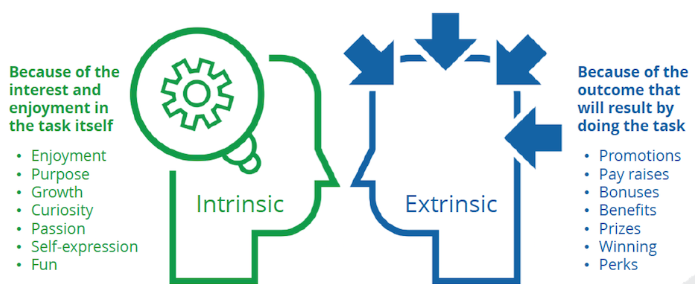
Generational differences in learning - 'notable variations between established and entry talent'
Generational differences are becoming increasingly important in the workplace, as more and more Baby Boomers, Millenials (Gen Y) and Gen Z work together. These two generations have different expectations of work, preferred learning methods, and ways of integrating learning into work and life.
A recent personal reflective study on the Chip Conley TED talk brought about the following subjective assumptions.
Expectations of work; Baby Boomers tend to be more focused on job security and stability, while Gen Y&Z are more focused on personal growth and development. Baby Boomers also tend to be more loyal to their employers, conversely Gen Y&Z are more likely to switch jobs in search of new opportunities.
Preferred learning methods; Baby Boomers tend to prefer traditional learning methods, such as lectures and textbooks. Gen Y&Z are more likely to prefer hands-on learning methods, such as internships and apprenticeships. Gen Y&Z is also more likely to learn through social media, online courses, and other technology-based methods.
Integration of learning into work and life; Baby Boomers tend to see learning as something that happens in the classroom or training centre. Gen Y&Z, on the other hand, see learning as something that is continuous and integrated into their work and life. Gen Y&Z are more likely to take advantage of informal learning opportunities, such as mentoring and coaching.
Expertise in, expectations of and availability and challenges of technology; Baby Boomers are generally less comfortable with technology than Gen Y&Z. However, Baby Boomers are also more likely to have experience in using technology in the workplace. Gen Y&Z, on the other hand, are more likely to have experience using technology in their personal lives. This can lead to challenges when Baby Boomers and Gen Y&Z are working together. For example, a Baby Boomer may not be comfortable using the same technology that a Gen Y&Z are using to complete a task. This can lead to frustration and delays.
Expectations of networking (social learning); Baby Boomers tend to see networking as a way to build relationships and find new job opportunities. Gen Y&Z, on the other hand, see networking as a way to learn new things, collaborate with others, and build their personal brand. Gen Z is more likely to use social media and online platforms to network.
By understanding these potential generational differences in learning, organisations can create more effective learning and development programs.
Businesses may wish to consider a few of the techniques below to Here are create more effective L&D programs where the workforce covers a wide generational spread;
- Offer a variety of learning methods. This will allow employees to choose the methods that work best for them.
- Make learning relevant to the workplace. This will help employees to see the value in learning and make them more likely to participate.
- Provide opportunities for social learning. This will help employees to connect with each other and learn from each other.
- Make learning fun and engaging. This will help employees to retain what they learn.
By considering these differences and tailoring programs to the specific needs of different generations organisations can create learning and development programs that are equally effective across all generations – enabling employees to learn and grow with the business leading to increased productivity and innovation.
Conley, C. (2011) https://www.ted.com/talks/chip_conley_what_baby_boomers_can_learn_from_millennials_at_work_and_vice_versa?language=en)
Hamill, L. (2017). How Intrinsic Motivation Keeps Employees Engaged <access on line 2.6.23> https://adurolife.com/blog/employee-engagement/intrinsic-motivation-and-your-employee-engagement-strategy/
Policy and Engagement specialist. Excited to be working with Tenants to ensure they can influence the decisions and services in their neighbourhoods
10moVery interesting article but whilst it gives a general view point I think that a lot of baby boomers have adapted to new ways of learning and individuals always have preferred learning styles but by being exposed to new ways and perspectives is healthy for all generations. In local Government I think this brings challenges to practice but that is good.
Helping make workplaces safe, a one stop shop for safety solutions for your industry, warehouse and storage
10moHello Tim, found this really interesting and that I may be a mix of all the gens but am more in than ex. Wish more companies included training and an ongoing part of company life, after all they have a service and upgrade contract for the copier why not the employees. Offering various types as mentioned too is key too as even in a same gen group you can have differing learning preferences, I am a see and do learner, writong my own how too to folow later and my husband for example prefers step by step instructions. Love your blog and look forward to sneaking a peak at more to come, I hope?
Landscape Architect Manager | Environmental Consultancy
10mo[edit] Tim - this is an interesting and very relevent article, which probably varies depending on what sector you are applying it to. Reflecting against the construction Design sector. I think a possible missing factor is Gen X. The kids of the 70s and 80s with their inherited resilience and innovation born in a world of emerging (information) technology. There is a unique primal quality of a GenX practitioner that I fear will decline unless we find ways to bridge the skills transfer between the intrinsic and extrinsic characteristics. I would ask : Do the mechanisms of modern business allow inherited skills to be passed on any more or do our Gen Y and Gen Z have no need for ‘old Tech or appreciation for how we did it ‘when I were a lad’. It’s an interesting problem, developing sustainable practices that allow for skills development and opportunity, whilst maintaining a stable commercial position and attainable levels of staff turnover.